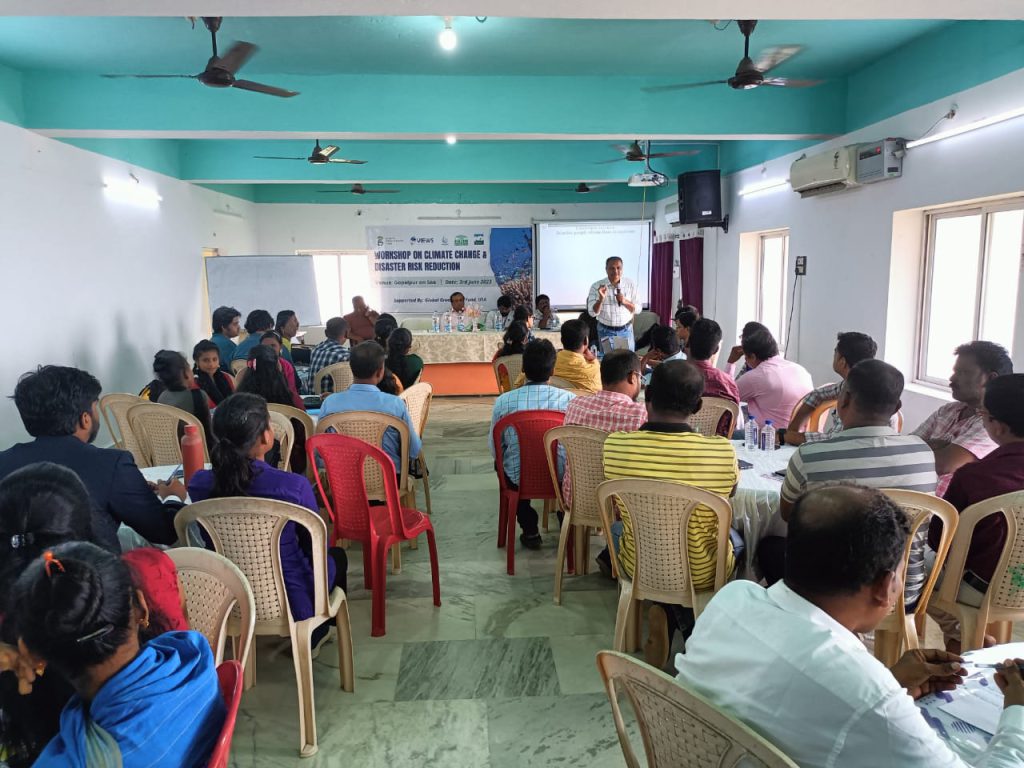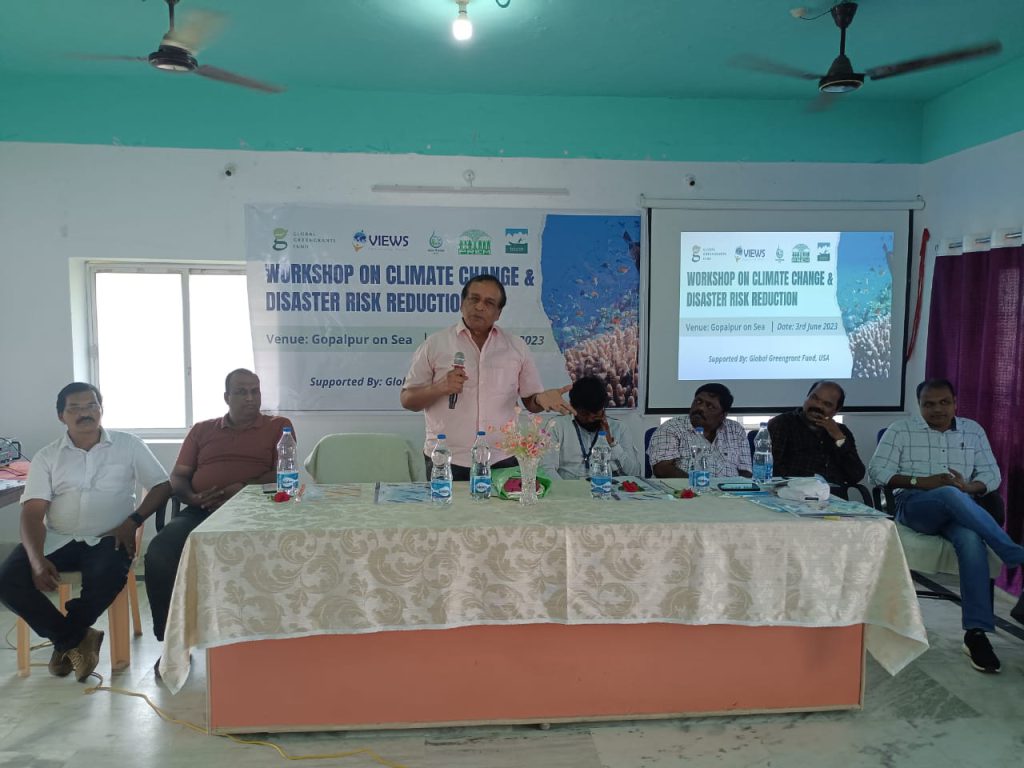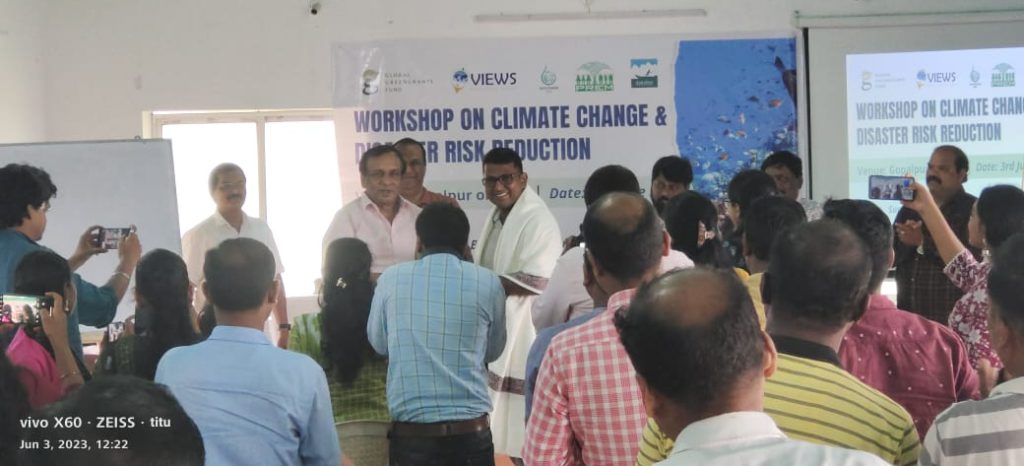Rising temperatures, extreme weather events, and a cascade of environmental consequences are the realities of climate change, a pressing global challenge that demands our attention. But alongside this challenge lies another crucial aspect: disaster risk reduction. It is the strategic approach needed to be taken to minimize the impact of natural and human-induced hazards. As climate change intensifies these risks, understanding the interplay between climate change and disaster risk management becomes paramount in safeguarding our communities and building a resilient future. In such a scenario, a workshop on Climate Change and Disaster Risk Reduction, organized by MP VIEWS provided a vital platform for participants to engage in meaningful discussions and gain crucial insights into the risks and vulnerabilities associated with changing climatic conditions in the coastal zones of Odisha. The event was held on June 3, 2923 at the Hill View Cottage in Gopalpur, Ganjam, India and supported by Global GreenGrant Fund (GGF). The event aligns with several Sustainable Development Goals (SDGs) such as Goal 13: Climate Action, Goal 14: Life Below Water, and Goal 17: Partnerships for the Goals.
The growing challenges posed by climate change and the associated risks of disasters in coastal areas, particularly in Odisha is a burning issue. Hence, the workshop attempted to address the impacts of climate change on vulnerable communities, such as the depletion of fish and livelihood challenges faced by the youth from fishing communities. The workshop was important for the neighborhood, the group of people residing in coastal areas, and the country as a whole for several reasons. Firstly, Odisha’s coastal regions are highly susceptible to the adverse effects of climate change, including sea-level rise, extreme weather events, and changes in marine ecosystems. These impacts directly affect the livelihoods and well-being of communities dependent on coastal resources. Therefore, addressing climate change and disaster risks is essential for safeguarding the lives, livelihoods, and resilience of these communities.

With a remarkable presence of the speakers from diverse backgrounds, the workshop had representations from academic institutions, organizations, and scientific institutions.It witnessed the participation of enthusiastic individuals from various backgrounds, including youth from 20 fishing communities in different villages. Attendees benefited greatly from engaging sessions, interactive activities, and expert-led discussions on sustainable practices, disaster preparedness, and effective strategies for mitigating climate change effects.
Initiatives like this play a crucial role in building climate literacy among people and fostering resilience in coastal communities. By providing a platform for knowledge-sharing and dialogue, it is important to empower individuals with a deeper understanding of climate change challenges and effective strategies for mitigating its impacts. An evident transformative impact of this workshop is the increased awareness among youth from fishing communities regarding the depletion of fish due to climate change. Moving forward, it is imperative to leverage expertise of field professionals in driving sustainable solutions and enabling communities to adapt, thrive, and build resilience in the face of climate change challenges


